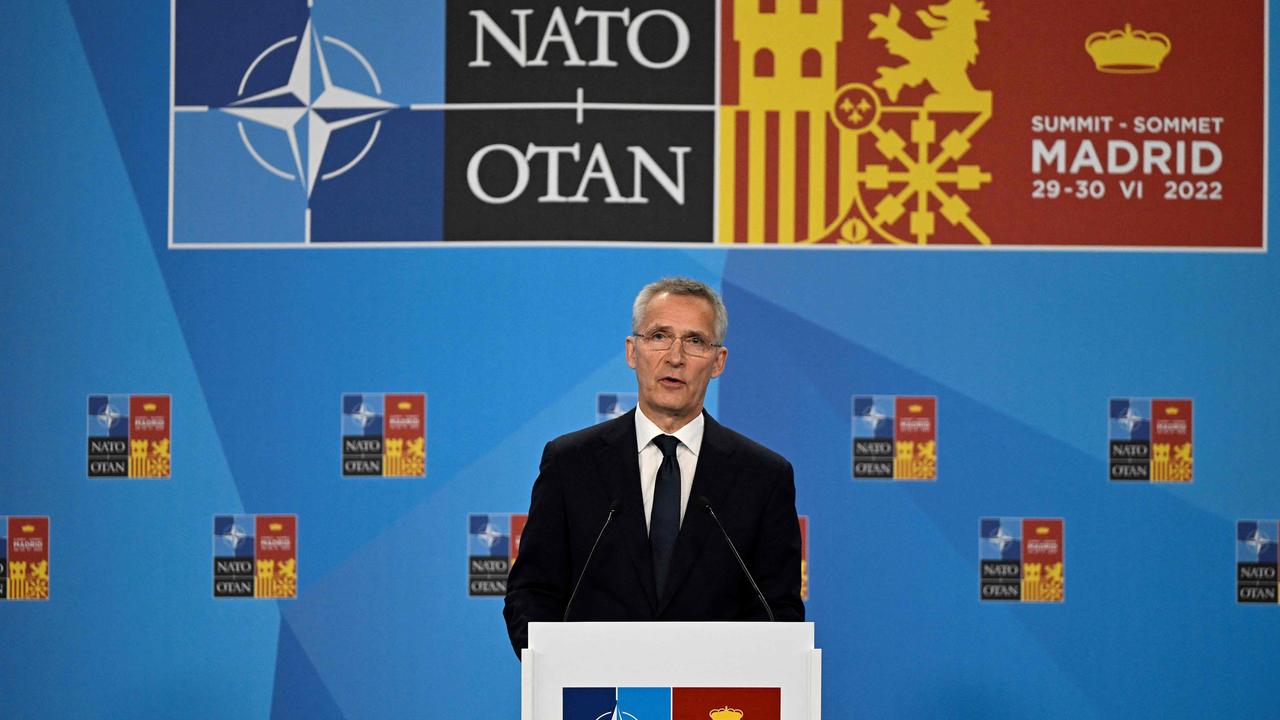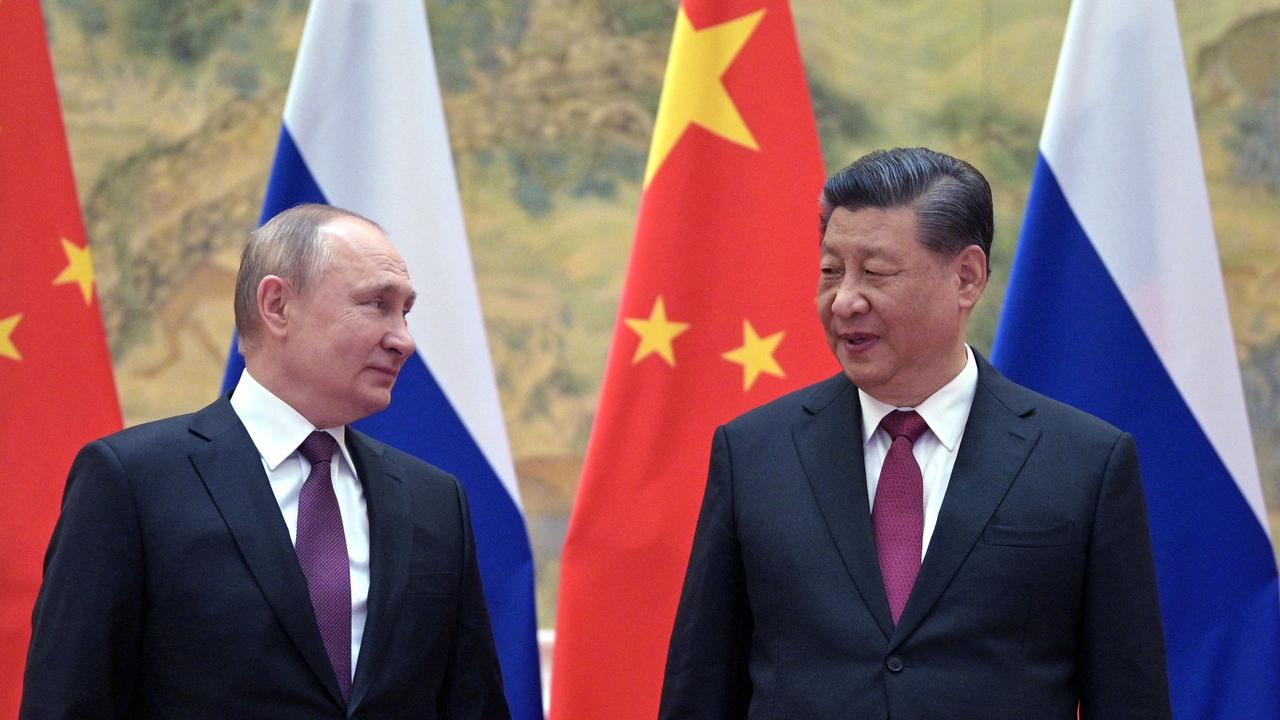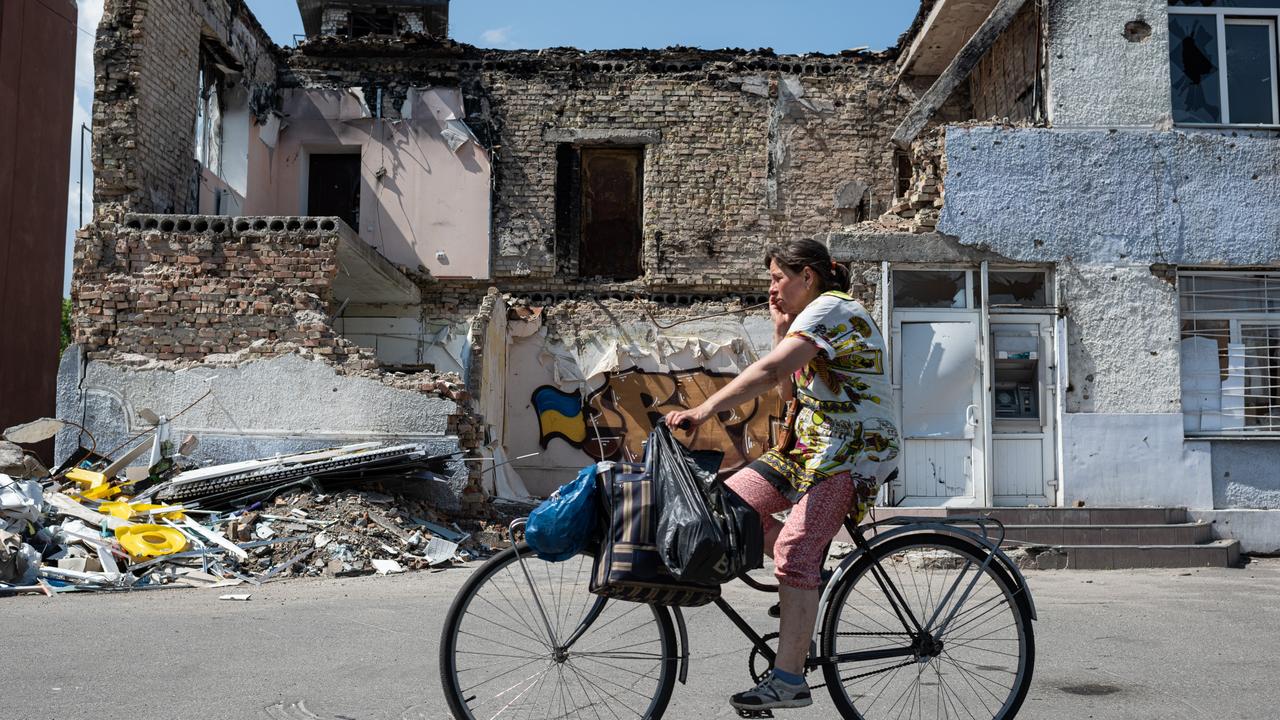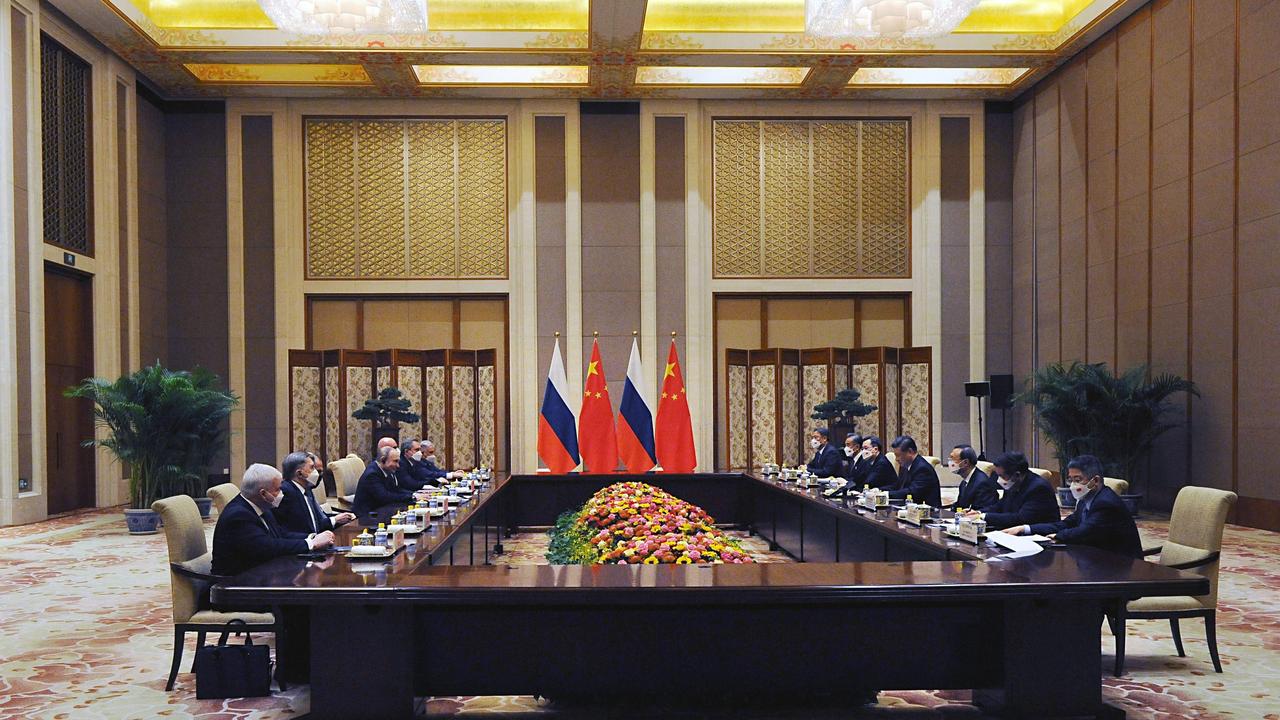Strategic partnership between Moscow and Beijing deepens
China has been warned about coysing up too closely to Russia. But there are increasing fears it’s doing just that – and NATO is worried.
NATO just declared Russia to be a “threat”. But it also decided China is a “challenge”. And lurking behind a series of meetings between global leaders were fears of the two teaming up.
“We see a deepening strategic partnership between Moscow and Beijing. And China’s growing assertiveness and its coercive policies have consequences for the security of Allies and our partners,” NATO Secretary-General Jens Stoltenberg said at a news conference Wednesday.
“The challenges we all face are truly global. The international balance of power is shifting, and strategic competition is on the rise.”
The seismic shift became blatantly evident just days before the invasion of Ukraine.
Chinese President Xi Jinping and Russian President Vladimir Putin met in Beijing. They issued a joint statement proclaiming their relationship has “no limits” and that “there are no ‘forbidden’ areas of co-operation”.
Then, 100 days after the war began and amid mounting pressure to condemn Russia’s invasion, Xi celebrated his birthday by picking up the phone and calling Putin for a cosy chat.
The fighting in Ukraine has become bogged down. International outrage is growing. Sanctions are mounting. And Beijing has been copping fallout for not condemning the aggressor.
But Xi is doubling down on his relationship with Putin.
His diplomatic and media apparatchiks persist with his spin of “pro-Russian neutrality” while supporting Moscow’s propaganda war. This includes rebroadcasting claims Ukraine was the site of secret US biological warfare experiments.
It’s not entirely a matter of “no limits” yet. China has so far hesitated to offer technological support in the face of global sanctions. And that’s provoking some Russian discontent.
Whether or not such aid arises will decide if the two belligerent powers truly have ‘no forbidden areas of co-operation’.

‘Bosom buddies’
President Putin again got his shirt off while holidaying to assure followers he is as virile and healthy as ever. But the thin-skinned autocrat’s act was met with mirth among Western leaders attending a G7 summit earlier this week in Germany.
It was a different story a fortnight ago.
Chairman Xi, celebrating his 69 birthday – the official cut-off age for Chinese leaders – gave his Russian counterpart a spontaneous phone call.
It was a simple act carrying immense significance.
Xi reassured Putin that “bilateral relations have maintained a sound development momentum in the face of global turbulence and transformations”. Meaning Russia’s bungled invasion of Ukraine will not affect closeting relations with China.
Xi promised Putin more support “on core interests and matters of paramount concern, such as sovereignty and security”. Meaning China is prepared to wear any fallout for tacitly backing the invasion.
“But what is more worrying for the leaders in the West is that Xi doubled down still further, pledging to deepen ‘strategic co-operation’ between the two countries,” Jawaharlal Nehru University analyst Hemant Adlakha argues in The Diplomat.
“By calling up Putin and assuring him of further development of economic, military, and defence ties between the two countries at a time when the Russian presence in Ukraine is not showing any sign of ending, Xi has not only totally ignored the Western warnings, but he has also put to rest speculations that the image of China moving too close to Russia has been causing concern in Beijing.”
Not everybody is surprised.
Ahead of a visit to Moscow in 2019, Xi called Putin his “best and bosom friend”. “That is the solid foundation of our close friendship. We treat each other with respect, candour, understanding and trust,” he added.

Strengthening axis
“China is substantially building up its military forces, including nuclear weapons, bullying its neighbours, threatening Taiwan … monitoring and controlling its own citizens through advanced technology, and spreading Russian lies and disinformation,” Stoltenberg said after presenting NATO’s new ten-year Strategic Concept.
Earlier, Chinese Foreign Ministry spokesman Zhao Lijian said that NATO members had been “creating tension and provoking conflicts”.
He wasn’t only talking about Beijing’s arbitrary territorial claims over Taiwan, the Himalayas and the East and South China Seas.
He was also referring to Russia’s “valid strategic interests” – code for its invasion of Ukraine.
NATO should “give up the Cold War mentality, zero-sum game and the practice of creating enemies, and not try to mess up Asia and the whole world after disrupting Europe,” Zhao added.
That “disruption” means Ukraine.
And that’s President Putin’s war of choice.
But Beijing has repeatedly refused to condemn Moscow’s aggression while blaming the US and NATO for “provoking” the invasion.
This allegiance was reflected in the new NATO strategy document.
It warns of a “deepening strategic partnership” between the two. It says their “mutually reinforcing attempts” to undercut the international order “run counter” to NATO values.
Some analysts are warning it’s a partnership that will only continue to grow.
The CSIS ChinaPower unit argues five key factors will ensure Beijing continues to back Moscow, no matter how badly it bungles Ukraine.
• Vladimir Putin personally supports Xi Jinping and his key initiatives;
• Russia helps to magnify China’s global reach at the expense of Western influence;
• Russia enhances China’s military power through arms sales and joint military exercises; and
• Russia assists China in meeting essential economic and energy needs.
• But mostly, it seems to be about President Vladimir Putin and Chairman Xi Jinping. They agree with each other’s ambitions, methods and actions.

Realpolitik
Will the Putin-Xi bromance last?
Is it real? Or a marriage of convenience?
A Foreign Affairs survey of global international affairs analysts is split.
“The Russian-Chinese relationship is not a durable alliance but, rather, a partnership without substance,” says President of the Center for European Policy Analysis (CEPA) Alina Polyakova.
“Russia’s disastrous war in Ukraine leaves Beijing in a difficult position: its economic interest is with the West, and Russia’s pariah state status is not helping relations with the West. One will have to give.”
Others see the scenario playing out in Beijing’s favour.
“Russia now has no choice but to be all in with China. That puts Xi in the driver’s seat,” says Center for a New American Security (CNAS) director Andrea Kendall-Taylor.
But the two leaders also have a lot in common.
“Xi needs his fellow autocrat Putin to stay in power and does not want to see Russia lose this war,” argues Brookings Institution analyst Angela Stent. “Putin is his ally in the quest to rewrite the global order and make the world safe for autocracy.”
So can this axis of aligned interest survive Putin and Xi?
“There are cracks beneath the surface resulting from the asymmetrical character of the partnership and from Moscow’s rising concern about growing Chinese ambitions in the Russian Far East, the Arctic, and Central Asia,” says Council on Foreign Relations (CFR) analyst Professor Charles Kupchan. “The West should remain on the lookout for opportunities to put distance between Moscow and Beijing.”
Such opportunities are almost inevitable, adds Stanford University analyst Stephen Kotkin.
“If Russia becomes destabilised, which cannot be excluded, China is ultimately a predatory power out to secure its perceived interests.

Future tense
“From this year, facing global turbulence and transformations, Sino-Russian relations have maintained a good momentum for development,” Xi told Putin during his birthday call. “The economic and trade co-operation between the two countries is progressing smoothly.”
The words were warm and strong.
But they remain just words. Uttered by a politician.
All eyes are on Beijing, watching to see if it turns these words into tangible action.
China and India have both quickly snapped up cut-price Russian coal and oil. This has helped Moscow find a supply of much-needed foreign currency.
But Beijing’s reaction to Western sanctions on electronics and heavy engineering equipment may be the sign that seals the marriage – or triggers a divorce. So far, Chinese industry has refused to supply Russia with spare parts for its Western aircraft, for example.
Whatever the outcome, the diplomatic partnership will likely remain strong for as long as Moscow and Beijing’s interests align.
How long that remains the case is the question.
And that has a lot to do with Putin and Xi’s mutual autocratic need to push back at global standards on matters like human rights, international territorial definitions and independent dispute resolution based on agreed rules.
“Mounting tensions with the US has been the main factor in driving the countries ever closer together during the past several years,” says Council on Foreign Relations (CFR) analyst Thomas Graham. “A change in US policy toward one or the other would begin to undermine their strategic alignment.”
That, says Kotkin, is the heart of the matter.
“Both China and Russia need the West more than they need each other, which, paradoxically, has served as a basis of their grievance-driven alignment.”




